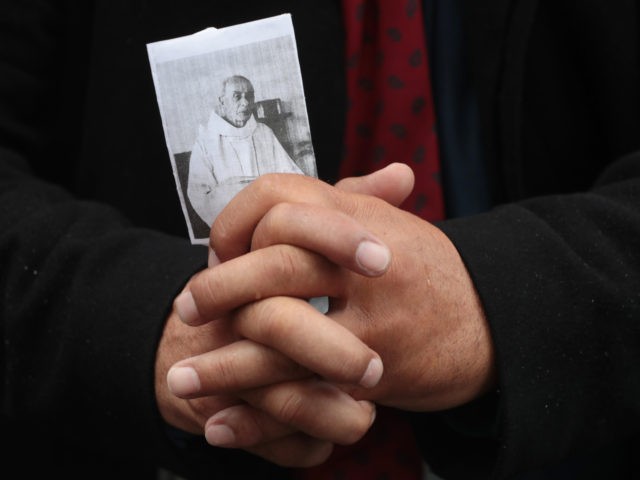Four men have been sentenced over the terror killing of a Catholic Priest in France, an attack that was perpetrated by self-described Islamic State members.
Sentences between seven years and life in prison have been handed down to four men in relation to the Islamic terror killing of French Priest Father Jacques Hamel, who was murdered at the foot of his church’s altar while celebrating mass.
The brutal killing — which saw the 85-year old have his throat slit while worshippers were taken hostage — occurred only weeks after a Tunisian drove a truck through a crowd of French civilians celebrating Bastille Day in 2016, an attack that killed 86 people.
According to a report by Reuters, none of the men sentenced on Wednesday had been present during the attack, but all were found to have some involvement with the two terrorist killers — both of whom claimed membership of the Islamic State.
Three of the defendants were handed down sentences ranging from eight to 13 years, with the fourth man — who is assumed to have been killed in a drone strike in Iraq in 2017 — being sentenced in absentia to life in prison for sponsoring the attack.
Dominique Lebrun, who serves as Archbishop of Rouen, reportedly praised the trial’s result, as well as its unusual feeling of “spirituality”, with some of the injured parties publicly forgiving the convicted men during the court proceedings.
“Justice was served,” The Guardian reports the Archbishop of the now-deceased priest as saying. “…[the court] had to convict these men for the good of society.”
The issue of Islamic terror — along with the apparently concomitant issues of immigration and national identity — has reached the fore of French politics, with the ongoing presidential race seeing candidates on the populist right making great strides in opinion polls.
Both Marine Le Pen of Rassemblement National and Eric Zemmour of Reconquête have taken hardline stances against Islamic extremism, with Le Pen suggesting that religious headscarves be banned from public places, while Zemmour warned that France would become a “large Lebanon” by 2050 if nothing changes.
More centrist candidates have also changed their approaches to dealing with more populist issues, with French Republican candidate Valérie Pécresse being accused of courting voters to her right after she made reference to the “great replacement” theory in a campaign speech.
Macron’s government has also since taken a much more hardline position when it comes to fundamentalist Islam.
Government officials now routinely shutter mosques for preaching extremist ideology in the country, while the President himself has revealed a “Forum of Islam” aimed at reshaping the religion as it exists in the Fifth Republic.
The Macron administration has also seemingly strong-armed a number of Islamic groups in the country into signing a French government charter that involves them renouncing political Islam, while also committing to end what it describes as foreign involvement in French Muslim life.
Critics however have warned that the document contains within it definitions of terms which are “problematic”, and risk criminalising “religious practices that are part of the common foundation of Islam and which are guaranteed by the Constitution”.

COMMENTS
Please let us know if you're having issues with commenting.